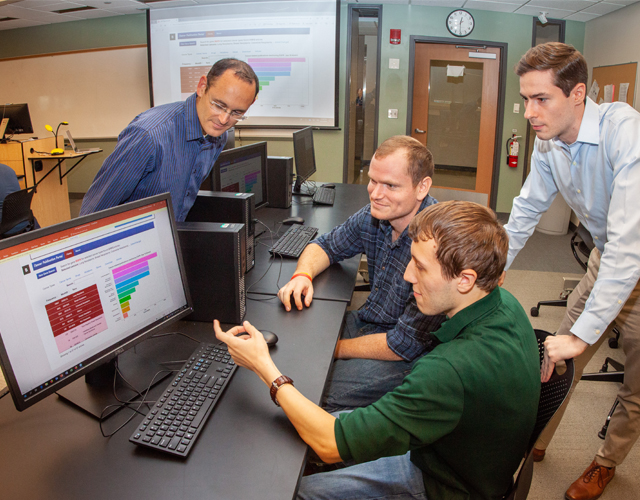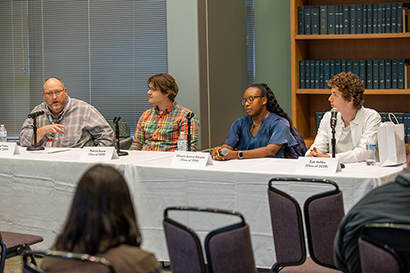Students in Eastern’s Computer Science major develop essential skills required for careers in computing and are ready to adapt to and succeed in a fast-changing global technology landscape. Graduates apply their acquired knowledge and computational skills to solve real-world problems in a variety of occupations. Critical thinking and adaptive learning are fostered inside and outside the classroom by faculty who are committed to high quality teaching and their own professional development. Faculty offer specialized courses in the areas of artificial intelligence, cybersecurity, data mining, and genomic data analysis. Two degree options are available. The B.S. degree is a traditional Computer Science degree that has a greater emphasis on mathematics and engineering, while the B.A. degree is designed for students who are interested in applied computing and the flexibility of a more interdisciplinary experience through elective courses in business, science, and the humanities.
- Apply
- Visit
- Request Info
- Give









